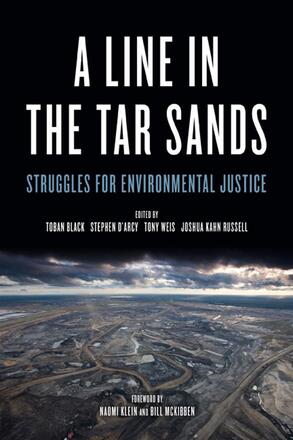
A Line in the Tar Sands
Struggles for Environmental Justice
Description
Tar sands “development” comes with an enormous environmental and human cost. But tar sands opponents—fighting a powerful international industry—are likened to terrorists; government environmental scientists are muzzled; and public hearings are concealed and rushed. Yet, despite the formidable political and economic power behind the tar sands, many opponents are actively building international networks of resistance, challenging pipeline plans while resisting threats to indigenous sovereignty and democratic participation. Featuring contributions from Winona LaDuke, Bill McKibben, Naomi Klein, Clayton Thomas-Muller, Harsha Walia, Jeremy Brecher, Crystal Lameman, Melina Laboucan-Massimo, Yves Engler, Cherri Foytlin, Macdonald Stainsby, Yudith Nieto, Greg Albo, Brian Tokar, Jesse Cardinal, Rex Weyler, Jess Worth, and many more. The editors’ proceeds from this book will be donated to frontline grassroots environmental justice groups and campaigns.